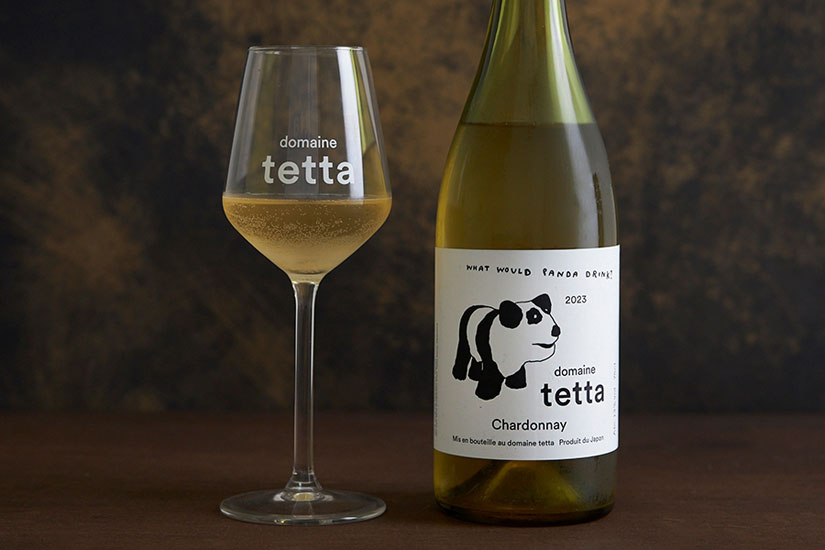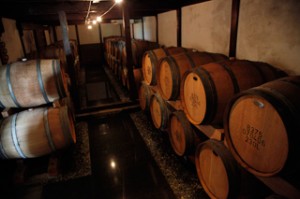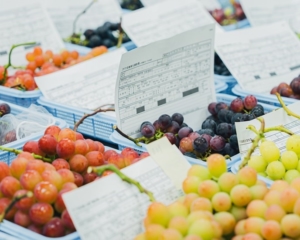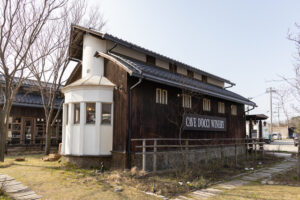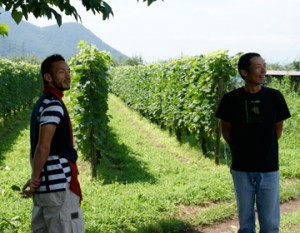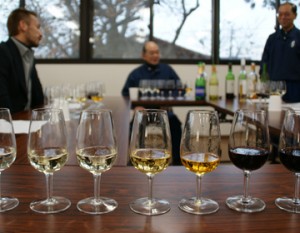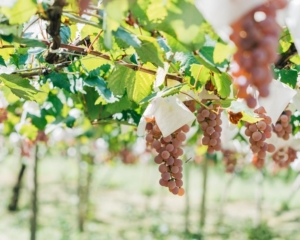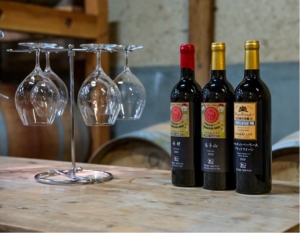Okayama Prefecture is famous for its fresh grapes such as “Muscat of Alexandria” and “Pione”. Niimi City, located in the northwestern part of the prefecture, has long been an active grape-growing area. Domaine tetta” was one of the first to start growing grapes not for fresh eating, but for wine, and is engaged in winemaking. We interviewed Mr. Ryuta Takahashi, the president of the company.
From a different industry to the wine industry
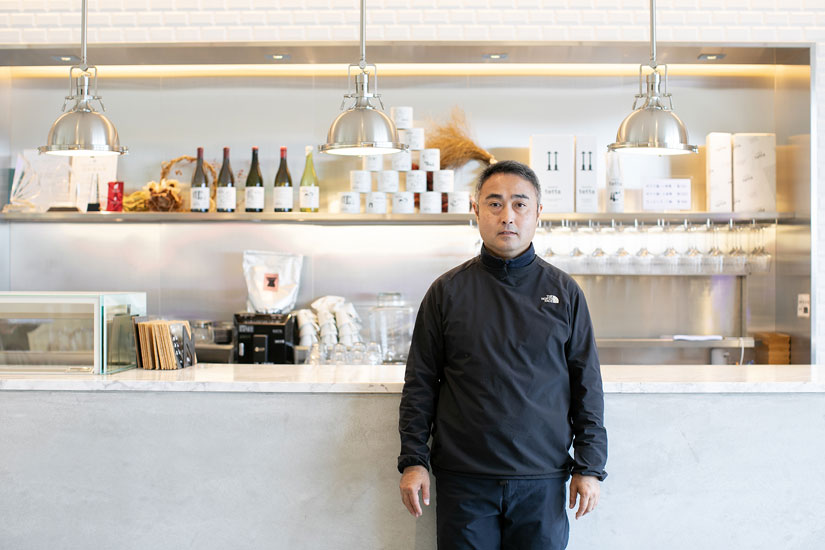
Ryuta Takahashi was born and raised in Niimi City, where he ran his family’s construction business.
The turning point for him came in 2005, when he came across a former vineyard that had been abandoned in the Tetta district of Niimi City. The previous owner of the land, with his diligent staff, had been working hard to cultivate the grapes and had produced very tasty grapes. It was a waste of a good vineyard. It is a waste of a vineyard that produces good grapes.
His new challenge began with his concern that the vineyards he had grown accustomed to as a beautiful local landscape had fallen into disrepair, and his wish to once again utilize this land that grows delicious grapes as a local resource. In researching the land, he learned that it had limestone soil suitable for winemaking, similar to that of Champagne and Chablis, the famous wine regions in France. In 2009, he established “tetta Co., Ltd.” with the aim of revitalizing abandoned land, believing that if he could cultivate grapes for wine, he could make the most of this land, which is a local resource. In 2010, with the help of friends who share his passion, he began cultivating grapes for wine.
He had no experience in viticulture, let alone farming. He had no knowledge of wine. I was a complete novice. It was reckless, now that I think about it,” he recalls with a laugh.
For the first few years after the establishment of the company, he only cultivated grapes and outsourced the winemaking to a winery in Yamanashi Prefecture. The grapes were harvested in the evening and loaded onto trucks, which Takahashi himself drove all night to bring to the winery.
The resulting wine was named “tetta,” which is the name of the region, with the intention of taking care of the land.
A winery that people want to visit
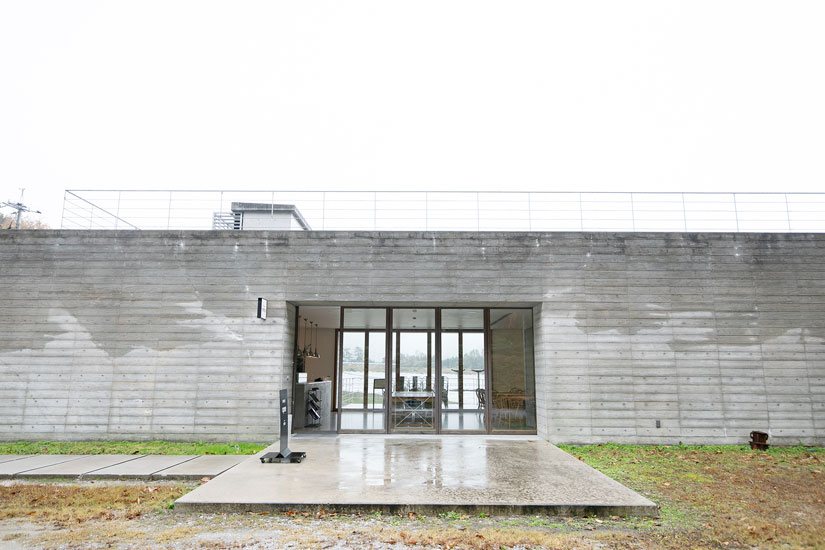
In 2016, the winery started its own winemaking. The winery has been a dream of Takahashi’s since its establishment: to become a winery that handles everything from grape cultivation to vinification and bottling in-house.
In establishing the winery, Mr. Takahashi had the following in mind: “I want people to see the environment in which the wines are produced and the winemakers. To do so, the winery must be a building that people will want to visit.
The result is “domaine tetta,” a stylish concrete winery that suddenly appears in the middle of a mountain of vineyards.
A place where people can feel that “wine is born here.
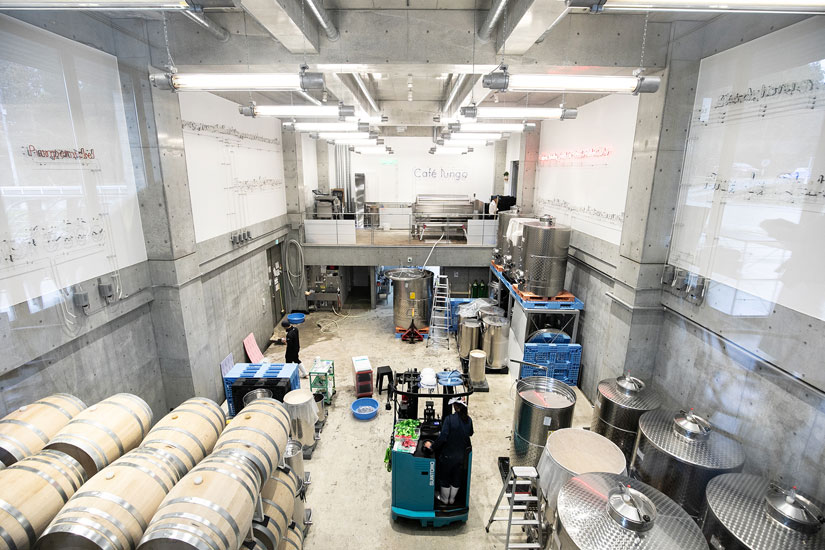
From the café, where wine tasting and sales are conducted, visitors can see the winery through the glass, and out on the terrace, they can enjoy a panoramic view of the vineyards. The winery is a place where you can really feel that wine is born here.
Takahashi recalls the day the winery opened. An old man who lived in a village at the foot of the mountain walked up the hill to buy wine for us. I was really happy that local people could drink locally produced wine. We have finally come this far,” he said.
Today, many young people from Japan and abroad visit this winery, not only wine lovers, but also young people who want to study wine.
The grapes are used to make wine.
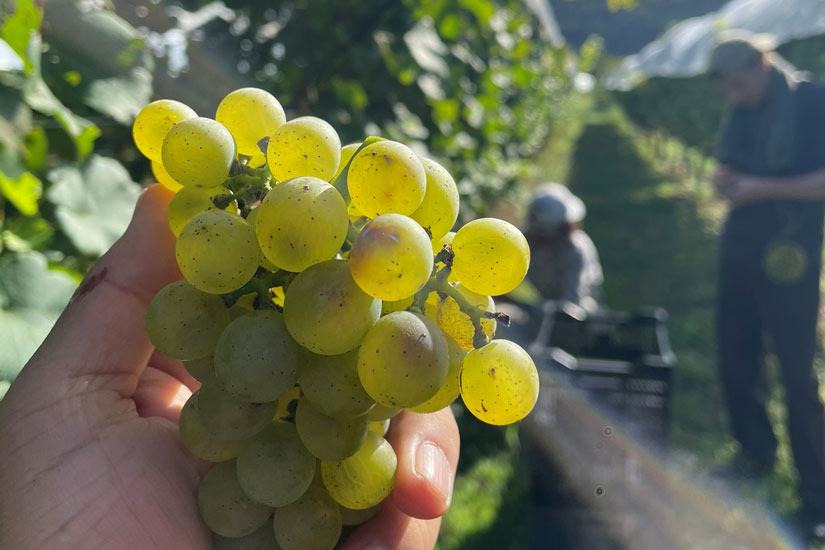
Okayama Prefecture is known as the “Land of Sunshine, Okayama” because of its high percentage of sunny days. In addition to ample sunshine hours, Niimi City is located at an elevation of 400 meters above sea level and has a large temperature difference, which makes it suitable for grape cultivation, such as sweetness and coloring.
In addition, “domaine tetta” is making efforts to reduce diseases and pesticides as much as possible by protecting the grapes from rain through a rain-cut cultivation method in which plastic covers are placed over the grape trellises so that the grapes are not directly exposed to rain. In this way, the ripeness of the grapes is slowly increased.
In winemaking, wild yeasts are used and no supplemental sugar or acid is added. Antioxidants are added only when necessary. The concept of winemaking is to “finish the wine by the power of the grapes” without adding artificial substances.
Aiming for Tetta’s Unique Taste
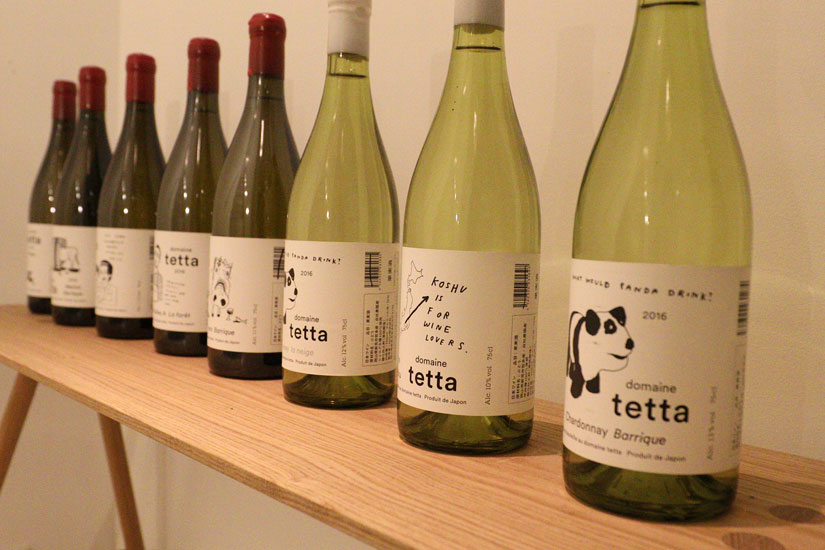
The next step is how to express the land of “tetta” (Tetta) in wine. The next step is how to express the land of “tetta” (tetta) in wine.
Currently, 22 varieties of grapes are grown, including those for fresh eating and experimental cultivation. The representative varieties are Chardonnay and Pinot Noir. In recent years, as the vines have aged, we have come to feel that the minerality of the land has emerged. One of the more unusual wines is made from Aki Queen, a red grape used for fresh eating. With its tropical flavor, the wine is said to be highly favored by people from overseas.
From 2021, in cooperation with the National Research Institute of Alcoholic Beverages, an independent administrative agency that conducts research and surveys on alcoholic beverages, they will conduct research on tetta in the cultivation and brewing process to deepen their knowledge of the effects of yeast on wine.
Nine seasons have passed since the estate was established. After nine seasons on the estate, he has finally gotten the feeling that he can compete with these varieties, and is now in the process of narrowing down his selection of varieties.
To prevent the vineyards from being returned to abandoned land again
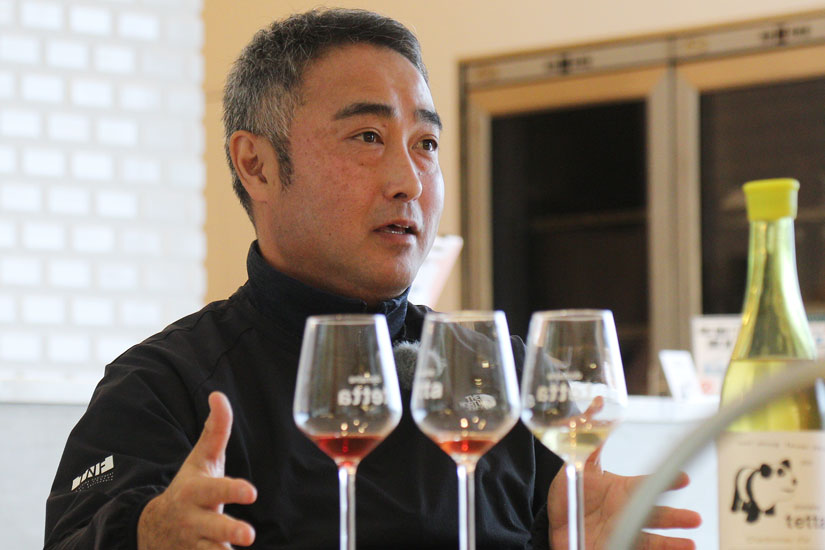
Domaine tetta” was started with the desire to revitalize abandoned vineyards.
It has been about 15 years since its establishment. From his own experience, Mr. Takahashi realizes that wine is not just a drink, but also a tool to connect various relationships. He also realizes that wine has the potential to connect to the world. In fact, “tetta” wines are now distributed in North America and Europe. In addition, two wineries have been established in Niimi City, following in the footsteps of “domaine tetta.
When asked about their future prospects, the answer was quite simple: “Our main goal is to continue growing grapes and making wine in this area. He believes that the most important thing is to create local employment and pass this business on to the next generation. He has never wavered from the fact that the core of this project is the “restoration of abandoned farmland. In addition, they will draw out the power of the grapes and create wines that showcase the terroir. The never-ending challenge of “domaine tetta” continues.



